What is it that summarizes you? Is it how much you keep in the bank? career achievements? The shape of your body? How about your condition? The place you’re living in; flat or villa, and the way you dress?
It is the culture that speaks of our possessions; that is the path to value, goals, and happiness is smoothed by what we own and achievements. Such accomplishment is revealed by “having”.
Yet, an alternative path might exist, what then?
According to Erich Fromm’s notion; “being”, whatever we accomplish and gain are not what speaks of us anymore. Switching our ideology from “having” to “being” frees us from contending for the sake of value, goals, and happiness anymore. Alternatively, we choose the path to follow which really accomplishes us – body, mind, and soul – and to form our community in such a path.
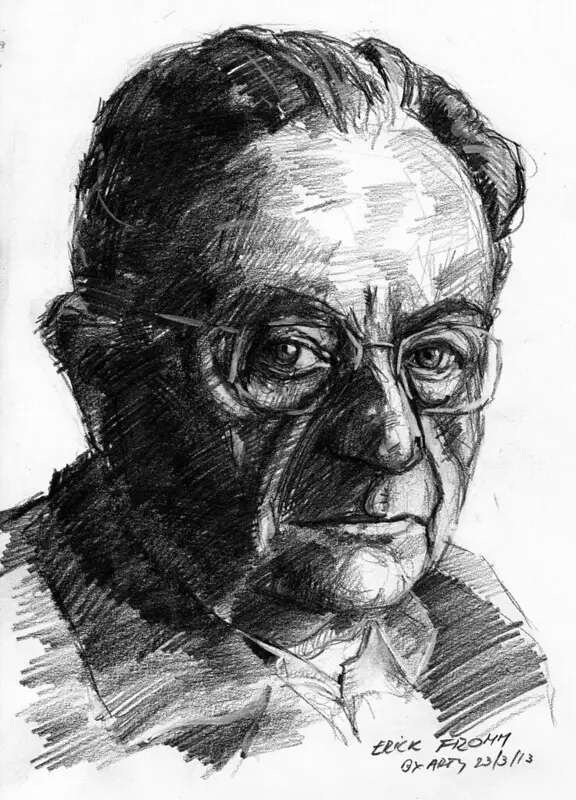
Chapter 1 – Economic well-being doesn’t bring happiness nor fortune.
Where we are, we find a product that sells us hopes for improved living conditions; an invented vehicle that brings us elegance, a mobile with features that help us in handling our duties. Yet, if such an improved life is easily there, why do most of us suffer confusion, isolation, disappointment, and dissatisfaction?
It’s unlike what we usually know since existing doesn’t mean to consume unrestrictedly.
Actually, the “pursuit of happiness” concept by Western culture has brought worry, gloominess, and addictions more than ever. This desire for challenge and contrast makes several people lonely and sure of the necessity of elevation and possessions. The funny thing is that if we keep collecting as our main target, we will not be satisfied. Further ailing to accomplish will follow us as we age. Nevertheless, what follows after the unrestricted consumption is a nonstop process, no matter in what class a person is.
Consequences related to the community remains there as well. An example is the unification of fortune among a small group of people.
The concept “every-man-for-himself”, which was brought by our capitalism, regards self-interests and rapaciousness and disgraces unity, sharing, and conviction. Ultimately, the gap between social classes gets larger because of that and forced conflicts may occur. Based on history, self-interests played a major part in most of the conflicts among nations – starting from the wars in France and India to the First World War.

When the community is consumed by greed, no one gains a thing. Head of companies aims to cheat customers, ruin the spirit of challenge, and take advantage of their employees. Then, what does this make of us? Shall we call for communism? Communism is not the solution since it doesn’t restrain consumption, which makes it just like capitalism.
Nonetheless, we should aim to take sharp shifts on social and economic levels to reform our community to serve the largest class within. Or else, we are going to be stuck in the loop of discontent.
Suggestions flood on a daily basis telling us what we should have to be content, and what to embrace to feel the sense of belonging. Yet, what reflections do such ideas leave upon our self-awareness and our relationships with the people around us? Do we have any alternative path? We will see the answers in the part to come.
Chapter 2 – Two concepts define the way we tackle life issues; “having” and “being”.
List a few of your things; like your watch and sunglasses. Think. Would you add your profession and your spouse?
One minute! Do you count them as belongings? Barely, yet we still consider them in that category. This makes it obvious; that the reason behind our tendency to feel imperfect, when we – and also who – don’t own those items. Nevertheless, using the “being” concept instead of the “having” one enriches our satisfaction with ourselves no matter what we collect or what we have.
First, we will discuss the “having” concept, one that materializes things in life.
If we consider the concept of living is to earn money and stuff as many as you want, people can join this list of things. For instance, think of what we say usually: a man of us keeps talking about “having” a spouse rather than “being” a one himself. Now, let’s zoom in depth.
The “having” methodology believes in “love” as a tactic to influence someone for a specific gain or purpose we want. Which may occur when fathers ask their kids to act or do something precise.
Yet, this kind of materializing everything goes further beyond.
That is, the “having” concept affects us to materialize our thoughts as well. It’s obvious in the manner we hang on to our beliefs rather than accepting the other perspectives. It treats thoughts and beliefs as if it was a possession; once it’s being altered, you feel like it’s something not found anymore.
On the other hand, the “being” concept asserts our real connections to others. Which releases our will to relate to people and blend within – even with people of different perspectives from ours – openly and truly. This contributes to a meaningful sense of the whole life.
During our “being” concept of life, we aim to our core becoming – illustrating our values and mindset and not our possessions. The matter that strengthens us to accept the other as the important thing is our relation to the globe and the content we feel when reaching our original purpose.
Therefore, the crucial issue for our accomplishments is the choice we make between “having” and “being”. And this is not Fromm’s idea only but also a number of historians believe so.
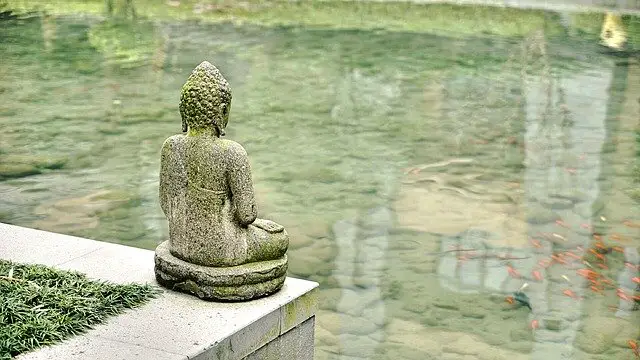
Take Buddha’s ideology, for instance, which has Nirvana as a goal – after passing a misery – to be achieved through removing the desire for owning. And while Christianity holds to Jesus saying: “What do you benefit if you gain the whole world but are yourself lost?”, Karl Marx found wealth and poverty in the same level of insecurity, and that we must elevate in what we are rather than what we have.
It looks like the “being” concept is better, do you think so too? Although the “having” concept spreads in each social class. Next, we look at how and what does the “having” reveals?
Chapter 3 – To-have concept produces selfhood
Having it all to ourselves sounds like this would bring us accomplishments. Yet, is this true? If everybody followed this assumption, powerful people would think of themselves and forget the common good for all people, which they shouldn’t. And during this game of social classes, people in a higher class would negligently watch their conflicts with other classes as their interests are safe.
Shall we begin to observe the powerful class! Since selfhood is prioritized, this shall bring only selfish chiefs and rulers who are driven by their own interests.
Leadership positions like business executives and politicians tend to codify rules and regulations of their firms by which they get more advantages than their laborers. This is just like a CEO keeps having the annual profits and prosperity while employees are discharged. It’s also like a governmental candidate who pays attention to some group or a rich sponsor for their monetary flow in return, though none of this would serve the common good of people.
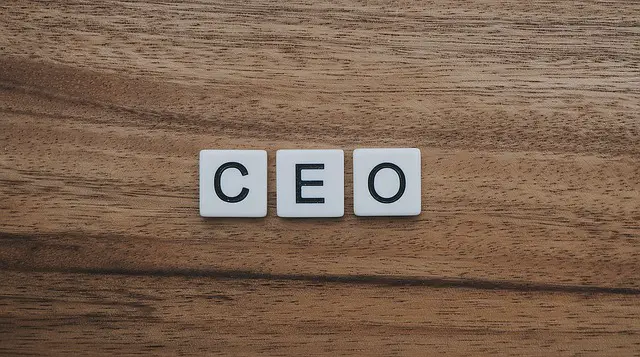
Such examples for a person’s ego, to which we got used, are everywhere and who we predict. The question is if such personalities are the results of our community which we all built, will they increase in number?
This issue takes us to the public masses, where having concept drives them to decline their duties as members of this community.
Instead of searching and contributing to the common good in the community, we tend to think of ourselves. Focusing on our own benefits, we remain careless for other people as a whole.
Of course, we may blame the authorities. Yet, after all, we favor negativity overthrowing the responsibility of state representatives and heads all the time. They don’t communicate directly with us to provide what we desire.
And here we are, the loop goes on.
While governors and businessmen cause such conflicts in society’s layers, the public keep silent with crossed arms. After a while, gaps between powerful class and the vulnerable become larger as two main parts in the community; the strong people and the weak ones.
About the weak, only one way to resist this situation is by rebellion. Such a revolution from below is the last thing a community with having concept requires to change into a “being” community.
Good results for such change would spread all over and for a long time. External affairs get better. Forced conflicts with financial purposes would stop. A road would be paved for peace.
Obviously, the fruits of the having concept are self-interests and feuds. Yet, such a phenomenon doesn’t happen only in the community among individuals or between firms but also between man and nature. Which we’ll see next.
Chapter 4 – Human being’s struggle with mother nature, at any sacrifice.
It was before the Industrial Revolution when mankind was bordered by nature in all their doing for a living. We knew its value and used to realize that we wouldn’t progress unless nature does. Nonetheless, filled with cupidity, ecological misuse nowadays threatens the existence of our planet, so it does to ours.
The time when we believed in our union with earth and how we used to appreciate it has been up. Right now, we only desire to get the best of it for ourselves.
It’s how we misuse what nature provides such as water, air, and forests. Yet, all resources would be drained, and the earth is, eventually, taking its vengeance from the man for his exploiting it.
Though earth is getting its vengeance, man’s vanity is still on.
Having powerful energies like the mechanical and nuclear ones in our hands has made us feel invincible, also replacing the human brain with artificial intelligence machines has made us believe that we are all-wise. We’ve built a new dimension to live in as superiors, while nature is just a tool that has been used in this construction. But we’ve come to a turning point.
Escaping this disaster and surviving rely on a huge ideational move.
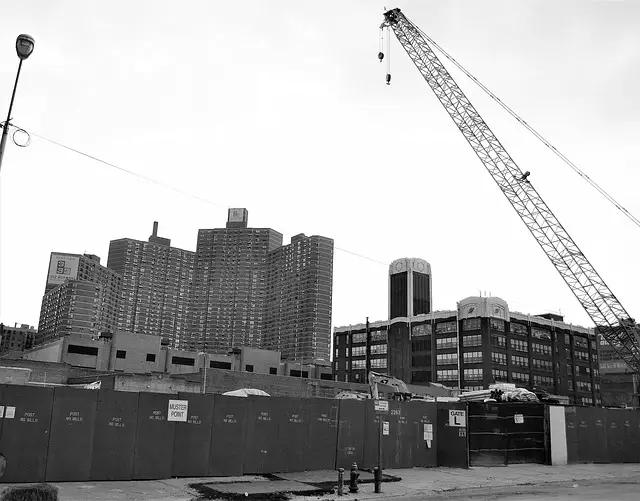
The environment is patronized with disrespect by the manufacturing systems. Yet, ruining the planet and stealing raw materials leads to environmental destruction and climate disorder. All this could, eventually, end up with worldly starvation, the extermination of mankind, and even the extinction of all species on this planet.
As for nature, and to avoid such a disaster, a code of obligations is to be invented. People must perform a grand conversion. What follows, uncovers how this transformation sounds.
Chapter 5 – The base of the discontent we feel shall be known and our features shall be converted to revolt our practices.
Before two millenniums, Siddhartha Gautama understood that whatever he possessed didn’t help to take away his pain, therefore, he gave up a world of influence and luxury he used to have. In realizing the capability of the religion of simplicity and passion for giving the illumination and sense he searched for, Gautama was the founder of Buddhism. As for us, we must try a shocking transformation in our ideology to live as we really want, without the need to drop all our possessions the way Buddha did.
Stage one for such a move is to be aware of the catastrophe, that is “having” concept is the cause of all the struggle.
How? It lays in three paths.
First, if the identification is set with possessions, all that we have will go away, then, of course, the danger becomes higher. Feeling secured won’t ever be there. The whole survival concept shakes.
Second, striving to gain power, benefit, and terms of reference make people turn on each other. And no winners in such a run. Since skills, power, achievements or qualities vary among all, where making preferences leads only to swipe the objective and happiness.
Third, we always follow enjoyment, asking to fulfill passing wishes. Our contentment relies on what excitement to come, but when the first thrill fades away, it surely paves the road to sorrow.
Therefore, realizing the issue is the key to open the first door for the shift. After wise, being convinced with the “being” ideology as the chosen methodology for ending the catastrophe.
How to benefit from that? It lays in three paths.
First, embracing the “being” ideology builds self-confidence and a positive notion of power. After that, nobody would be able to strip such strength from us.

Second, the freedom for sensing the value of staff without feeling the desire to own them enables us to share the pleasure with others, which is among the deep concepts of man’s life.
Third, getting overwhelmed with the “being” ideology, we refine accomplishments by showing our feelings, rationality, creativity, and the ability to share. Because being shone upon us, no matter what we encounter.
Each person has the ability to choose to perform in the hollow case of having or the achievable cause of being. Nonetheless, the identity of the community plays a major part in deciding on which of the two forms the controlling prompter for us. That is, if our life shall change, our community shall change as well.
Chapter 6 – To change human life, a society shall change and a new purpose for a living should be recognized.
Although it’s hard for us to say it, we are the results of our ecological system. In this case, if we wish to get rid of our misery as being part of a consumption-based community, we must rebuild the whole community as a group. According to Fromm’s view, a new community can be born only if innovative vantages are determined.
No one of us can escape this. If we care enough to demonstrate consistency, we shall recognize a common notion of perfection or satisfaction that the community’s “being” will stand on.
Then, where to begin?
Philosophically speaking, we should go back to ask ourselves; “What benefits humanity?” instead of asking “What benefits the system?”
Practically, we ought to state again the sense of being productive. According to communities, productivity doesn’t reveal anymore a corrupted firm covered by goodness. Rather it reveals acting for the sake of serving and showing our real identity. The manner in which we perform is way more prominent than the doing itself.

This move of determining the promotion shall improve connections among people, belongings, and time.
With the community quitting the adaptation with the having concept, we start to think subjectively and behave like civilized people one to another. Transparency and innovative personal declaration won’t be only allowed but also in demand.
As for belongings, mankind will continue to feel the urge to have specific staff. Yet, by this move in determining the promotion, we would stop the discontent of owning things as consumers, rather, we would follow a reasonable one. We shall keep out focus on having what we need to survive, only.
Finally, responsibility shall be our periodical lesson instead of obeying its despotism. Now, we attempt not to waste time, we attempt to let it pass. These various considerations of time show the perfect degree of respect we have for it to skip the two opposites; inflammation and deficiency in production.
Considering discontentment and misery as unavoidable is not that hard. Yet, if we, as a group, keeping track of being instead of having, we would most likely glorify the community, then, reveal each person’s achievement. So, what obstacles do such modifications have? The final part shall look into that.
Chapter 7 – Humanity is tended to neglect change, regardless of the accomplishments brought by.
When Spanish Civil Was was on in the late 1930s, the British governor Arthur Koestler fled to Málaga. Knowing that he was chased by the Spanish army and that people of Málaga had left it, he refused to abandon his luxurious mansion to travel in the dark of wintery weather conditions. Remaining there with no action taken got him to fall as a prisoner. Koestler’s sad ending reveals the destruction resulted comes by falling to the anxiety of disturbance and uncertainty.
When we think of the differences required by the community to be made, we feel anxiety to the extend that lead us to forget about future catastrophes since we are good at present.
But the truth is: gambling or following a dangerous chance to the uncertain is possibly scary. There is a risk in each much to be made. We might not succeed. To prevent facing such dread, we naturally cling to what we think is safe and known. On the contrary for a community, people just can’t manage to stay still.
A shift from frozen democracy to an active one where high ranked civilians think of the common good first must be performed.
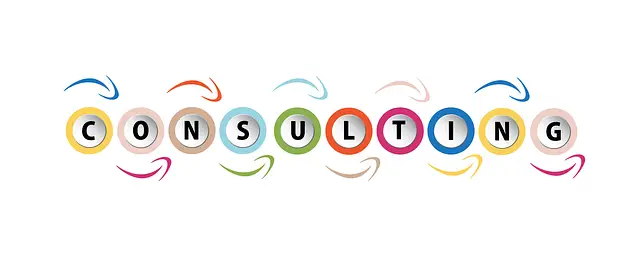
For instance, though appointing consulting groups to assess the items and regulations, both state and civilians would know exactly what they require to declare explicitly the class who serve the community’s good. Accordingly to this, authorities would act to implement a gradual instructional system to assist in understanding, forwarding, yet disposing of hazardous products.
This shift will be far from simple. Though, we must fix our current methodology, which puts good welfare first even if mankind’s goodness is at risk.
This suggests moving from unchecked to controlled consumption. Instead of targeting the massive progress, we must move to intelligent progress, installing the needed reforms impartially so that an economic mess would be prevented.
This sort of performance may seem high-priced. Yet, the price for not doing anything is mankind’s dissolution at the end. If that seems unbelievable, think of one reason to cheer up: Cultures contribute to the public to perform when they are sure that they have to. If most of us decide “to be” rather than “to have”, then, we all can undergo full accomplishment.
To Have or to Be? The Nature of the Psyche by Erich Fromm Book Review
Reaching a real prominent, aim, and pleasure depends on your capability to give up the “having” concept to replace it with the “being” one. This reveals the step of putting first what leads to the ultimate achievement for yourself and people, instead of thinking only of yourself in sustaining power and properties. Therefore, unleash your dread for such a shift and begin to accept the life you wished for.
Evaluate and question the truth and sense that paths that you took during your lifetime shaped to you.
Assuming that you often desire to spend time on TV. technically, this acceptable as a rightful thing. Yet, if you thought of having another thing to do, wouldn’t that be more joyful? Such as getting Piano lessons, for instance, or grabbing a cup of coffee with some dear to you? Interrupting your daily doings might make you feel annoyed at first, on the other hand, an excitement for opening your mind on life explorations is greater than TV series.
Download Pdf
https://goodbooksummary.s3.us-east-2.amazonaws.com/To+Have+or+to+Be+by+Erich+Fromm+Book+Summary.pdf
Download Epub
https://goodbooksummary.s3.us-east-2.amazonaws.com/To+Have+or+to+Be+by+Erich+Fromm+Book+Summary.epub
